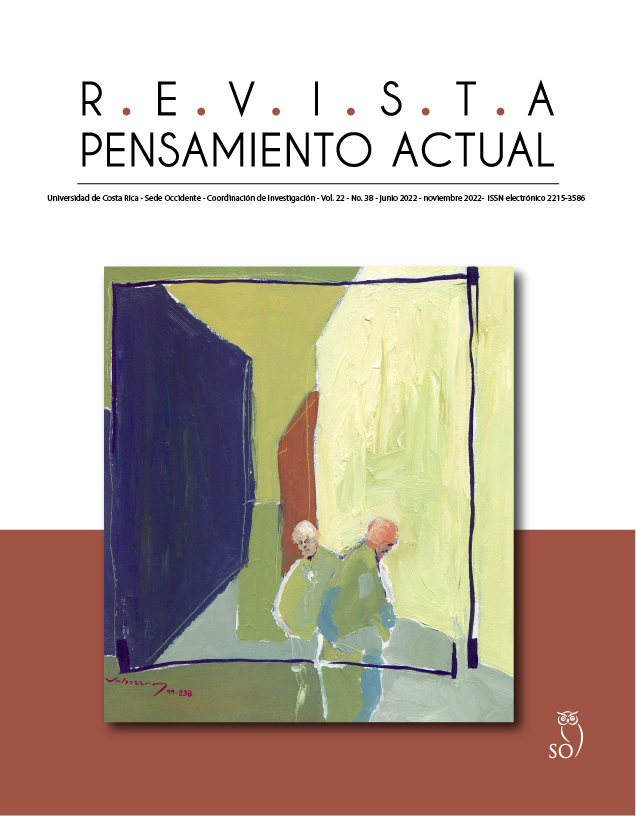Abstract
This presentation is located within the framework of the Curricular Transformation carried out by the Ministry of Public Education of Costa Rica, in which the student is the center; in other words, it is expected that the teacher is not the one who transmits the knowledge and in some way makes it feel that there is one who knows and the rest are empty, but that it facilitates learning and is not taught only to take, for example, a written test. Last said has as one of the starting points the State of Education Reports, so it has been considered convenient to recall some ideas of each of them, which allowed to outline said Curricular Transformation. Once the contextual framework has been described, reference is made to the most significant characteristics of the Spanish Studies Program for the first and second cycles, as well as those of the third cycle and diversified education. Also, it is described that the approach of these Programs is communicative. In this sense, as stated in them, linguistic competences must be worked on in a linked way, in relation to reading comprehension, oral-listening communication and the production of texts (written communication). To put into practice everything that was said, a pedagogical mediation process was proposed with seventh-year students from the Naranjo Experimental Bilingual High School. Through the didactic strategy developed, communication skills are linked through the techniques and activities that orchestrate the development of communicative competence from the story "The giant turtle", by Horacio Quiroga. The proposal consists of nine moments in which, progressively, knowledge is built and communication skills are interwoven. The unifying point of all the analysis spaces is the didactic strategy called QQQ, which implies a generation of triads of questions that guide the critical analysis of cases, situations, texts, images, and others. In the first instance, as an approach to the text, students must use online applications to build their concepts together. This activity is complemented by the projection of multimedia resources on the theme of gratitude (which predominates in the story of the uruguayan writer). Within the triple Q proposal, activities such as case analysis, argument inference from images, story reading and analysis are generated. In the final activities, a digital tool for the generation of mental maps is incorporated again. To conclude, the students write a composition that enhances the argumentative capacity based on all previous experiences, in the setting of the pedagogical mediation strategy for the development of communication skills in a linked way.
References
[Ilustración del cuento “La tortuga gigante”]. (s.f.). https://i.pinimg.com/originals/81/a0/ab/81a0ab103b389ef1915ef20aa1839429.jpg
Amaya Guerra, J. (2008). Estrategias de aprendizaje para universitarios. Un enfoque constructivista. Editorial Trillas.
Lyra, C. (2012). Cuentos de mi tía Panchita. Imprenta Nacional.
Ministerio de Educación Pública. (2013a). Programa de estudio de Español. Primer Ciclo de la Educación General Básica. Ministerio de Educación Pública.
Ministerio de Educación Pública. (2013b). Programa de estudio de Español. Segundo Ciclo de la Educación General Básica. Ministerio de Educación Pública.
Ministerio de Educación Pública. (2015). Fundamentación pedagógica de la transformación curricular. Ministerio de Educación Pública.
Pimienta Prieto, J. (2008). Constructivismo: estrategias para aprender a aprender. Pearson Educación.
Programa Estado de la Nación. (2005). Primer Informe del Estado de la Educación. Consejo Nacional de Rectores / Programa Estado de la Nación. https://repositorio.conare.ac.cr/handle/20.500.12337/677
Programa Estado de la Nación. (2008). Segundo Informe del Estado de la Educación. Consejo Nacional de Rectores / Programa Estado de la Nación. https://repositorio.conare.ac.cr/handle/20.500.12337/660
Programa Estado de la Nación. (2011). Tercer Informe del Estado de la Educación. Consejo Nacional de Rectores / Programa Estado de la Nación. https://repositorio.conare.ac.cr/handle/20.500.12337/675
Programa Estado de la Nación. (2013). Cuarto Informe del Estado de la Educación. Consejo Nacional de Rectores / Programa Estado de la Nación. https://repositorio.conare.ac.cr/handle/20.500.12337/672
Programa Estado de la Nación. (2015). Quinto Informe del Estado de la Educación. Consejo Nacional de Rectores / Programa Estado de la Nación. https://repositorio.conare.ac.cr/handle/20.500.12337/669
Programa Estado de la Nación. (2017). Sexto Informe Estado de la Educación. Consejo Nacional de Rectores / Programa Estado de la Nación. https://repositorio.conare.ac.cr/handle/20.500.12337/665
Programa Estado de la Nación. (2019). Sétimo Informe Estado de la Educación. Consejo Nacional de Rectores / Programa Estado de la Nación. https://repositorio.conare.ac.cr/handle/20.500.12337/7773
Programa Estado de la Nación. (2021). Octavo Informe Estado de la Educación. Consejo Nacional de Rectores / Programa Estado de la Nación. https://repositorio.conare.ac.cr/handle/20.500.12337/8152
TDA Media Channel. (2012). Gracias. Youtube. https://www.youtube.com/watch?v=KtH3nOENW10

